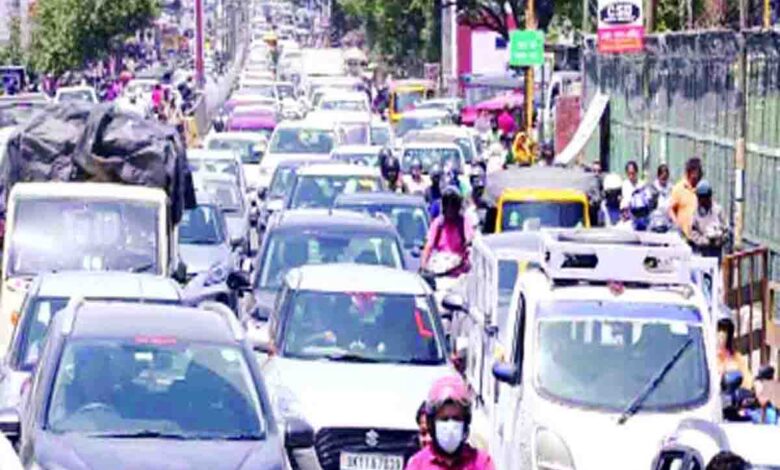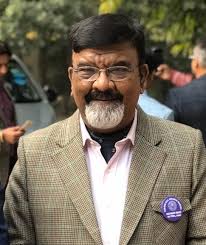Reclaiming Dehradun: Battling tourism woes

Wednesday, 03 July 2024
 Sidharth Mishra
Sidharth Mishra
Once an idyllic retreat and educational hub, Dehradun is now grappling with unchecked tourism, threatening its serene character
In the pantheon of the leaders belonging to the Bharatiya Janata Party (BJP), the name of the late Manohar Parrikar would always be taken with a lot of respect. A Goan and an IITan, Parrikar was never happy with the stereotypical image of his state being a tourist destination for cheap alcohol, drugs and also sex.While Goa attracted tourists for its natural beauty and cultural magnetism, since the 1990s, there has been a noticeable increase in visitors drawn to the state for its permissive environment regarding alcohol, drugs, and sex tourism. Manohar Parrikar was vocal about his reservations concerning this shift in the tourist profile. He believed that such trends would tarnish Goa’s image and disrupt the social fabric of the state once and for all.A leaf could be taken out from the books of Parrikar by the current Chief Minister of Uttrakhand, Pushkar Singh Dhami regarding a similar crisis being faced by the Himalayan state.
Take a drive from Clock Tower in Dehradun on the legendary Rajpur Road to Mussoorie, you will realise that all the cars parked on the roadside are doubling up as bars.This ‘car-o-bar’ would often be a vehicle with a Haryana, UP and Punjab number plate. The two days that one was in the Doon Valley recently, as these bars roared in the costly model cars, one could not find a single soul in the police uniform to check them. Somewhere it seemed that the absence of the cops on this road was deliberate to let these bars prosper.Dehradun was once known as the bakery capital of India. These bakery shops lining Rajpur Road have been overtaken by wine shops with glitzy lights announcing prominently what they sell. Well, one cannot protest about the shops but buying bottles and drinking outside on the roads have to be surely protested.Author Ratna Manucha, whose family has stayed in the valley for ages, calls these ‘car-o-baris’ the Aliens from the other states. “Each year the crowds coming into my town swell. These aliens from outer states come in obscenely big cars, they drive nasty, trying to edge us locals in our sensible little cars off the road, showing the finger on occasions and mouthing expletives, throwing rubbish out of their windows, drinking on unlit highways, and then crashing their cars into unsuspecting locals,” says Manucha.Things get worse during the weekends as the Rajpur road gets clogged. The ‘tourists’ really don’t mind spending hours in the serpentine queues.
However, the residents of Doon living either on the arterial road or the smaller roads prefer staying at home lest their plan to visit somebody gets wasted in the jam. Dehradun till about 10 years back was not like this. It was still an idyllic town preferred by people to live a retired life. In broadening the roads to accommodate ever-increasing traffic flow, trees have been cut. Given the winter pollution in Delhi-NCR, a large number of people have bought apartments in Doon Valley to spend the winter months. This demand has given rise to the building of multi-storeyed apartments. In turn, these apartments have been built clearing the lychee orchards, which once kept the valley green.Dehradun till some years back did not need the use of air-conditioners. The hotels with the ACs largely used them during the winter months for room heating purposes. But you can now see the topography of the valley with houses having air-conditioners jutting out of their windows.This ‘horrorscape’ is not just limited to the summer tourist season. Dehradun in the past two decades has evolved into a major centre for higher education.
The large number of the colleges, both professional and general, have mushroomed along the ridges and the plains. They are not exactly home to centres for great knowledge earning but certainly, give a graduate degree for a handsome fee.Given the high fee structure, there is always a dearth of students and vacant seats. The marketing teams of these institutions scout far and wide specially looking for the youth wanting some fun with a degree as a bonus. These ‘students’ prefer staying in the apartments outside the campus, as it can accommodate their costly cars, as there are no restrictions on their timing to return home and none really bothered if their vehicle fell into a gorge as they drove in a drunken state.Uttarakhand too has liberal liquor laws like Goa. Excise duty earned from liquor sales is the mainstay of the state revenue. But shouldn’t Dhami be concerned about the image of Uttarakhand like Parrikar was for Goa?The late leader streamlined things in Goa without really tinkling with the existing laws. Parrikar emphasized the need for a robust law enforcement framework to tackle alcohol and drug tourism.
He increased police patrolling in tourist hotspots and enhanced coordination with central agencies.Second Parrikar pushed for regulations to control the sale and consumption of liquor in tourist areas. This included measures such as restricting liquor outlets and promoting responsible drinking through awareness campaigns.Dhami government in Uttarakhand too needs to make the presence of the cops more effective and control the misery that the residents of the city are being made to face. It’s also depressing for those who regularly visit Doon to spend some time in peace who are now ending up being shooed by the blaring horns of speeding vehicles.
(The writer is the author and president, of the Centre for Reforms, Development & Justice; views are personal)






